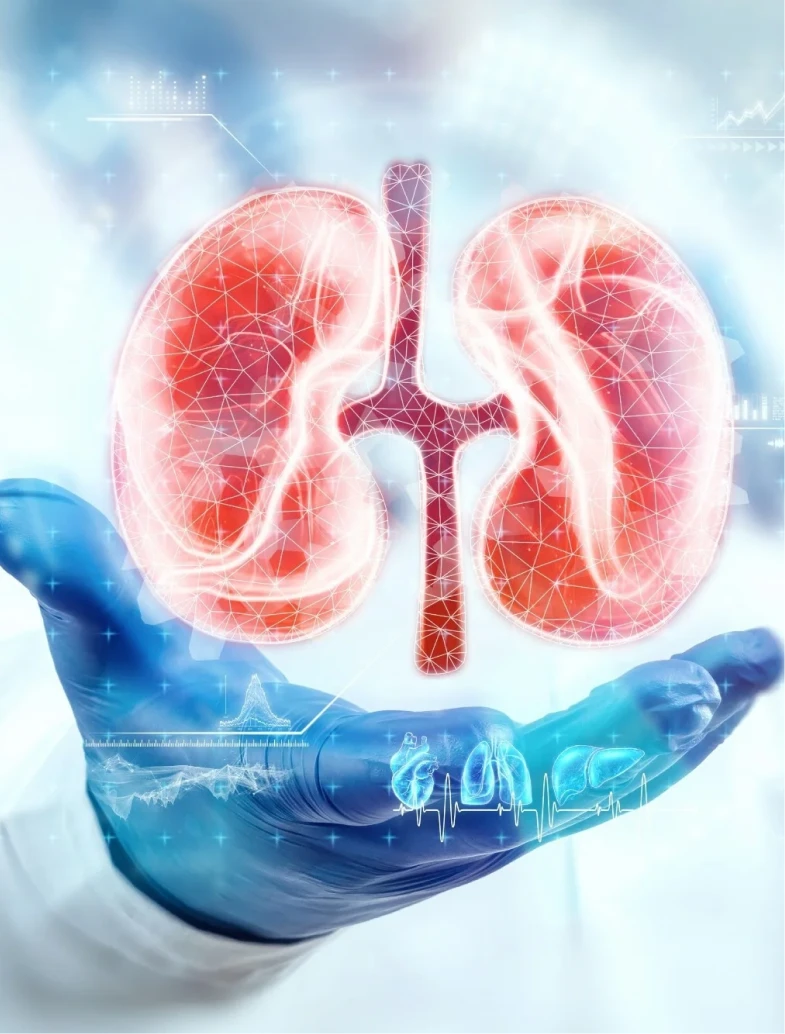
What is Cadaver Kidney Transplant?
A cadaver kidney transplant, also known as a deceased donor transplant, is an option for patients with kidney failure requiring dialysis who do not have a suitable living donor. Such patients can enroll in the State Deceased Donor Program, which allocates organs based on factors such as blood group, years on dialysis, prior transplants, and access issues. Given the extensive waiting list, a patient may wait approximately 3-5 years for a kidney and will need to continue dialysis during this period.
Cadaver Kidney Transplant Procedure
In a cadaver transplant, the donor is a person who has become brain-dead (due to an accident, brain stroke or other causes) but still has a "beating heart" also called Donation After Brain Death (DBD). The donor's body is maintained on ventilator and inotropic support. Once the donor’s family gives written consent, the organs are retrieved. The recipient is selected in coordination with the State Deceased Donor Program (e.g. Jeevandan in Telangana & AP) and must be prepared to go to the hospital promptly when a donor kidney becomes available. After necessary investigations and a negative crossmatch with the donor, the recipient is admitted and scheduled for an emergency transplant.
Risks of Cadaver Kidney Transplant
The risks associated with deceased donor kidney transplantation include:
- Rejection
- Infections
- Delayed kidney function
- Steroid-induced diabetes (especially if there is a family history)
- Recurrence of kidney disease in the transplanted kidney
- Cataracts, bone weakness, and obesity
- Heart attack or stroke
- Wound infections
- Surgical risks, such as bleeding or clotting
Despite these risks, advances in transplantation science have led to a high success rate of about 95% for cadaveric transplants.
Post-Transplant Care
After the transplant, the recipient will typically stay in the hospital for 7-10 days. In some cases, dialysis may be needed if the kidney does not function immediately. Close follow-up and regular blood tests are essential to monitor kidney function. The transplant team often recommends that the patient stay close to the hospital for the first three months to facilitate regular check-ups and necessary blood tests.
Outlook and Prognosis
A successful kidney transplant provides a significantly improved quality of life compared to dialysis. However, it requires lifelong commitment to follow-up care and medication adherence. Recipients are advised to:
- Follow the diet prescribed by the transplant team.
- Maintain adequate hydration.
- Avoid alcohol and smoking.
- Keep body weight within the recommended range.
- Engage in a regular exercise program.
- Take all prescribed medications without missing doses.
- Report any medication changes or new medical issues to the transplant team immediately.
- Ensure the transplant team has accurate contact information and can reach them easily, especially for notification if a kidney becomes available.
This proactive and disciplined approach helps ensure the success and longevity of the transplanted kidney.
Cadaver Kidney Transplantation in India
If you’re considering a cadaver kidney transplant due to chronic kidney disease or end-stage renal failure, expert care is crucial for a successful outcome and long-term well-being. Dr. Kamal Kiran specializes in deceased-donor kidney transplants, offering a comprehensive approach tailored to each patient's unique needs. From navigating the state deceased donor program to managing the transplant procedure and post-surgery recovery, Dr. Kamal Kiran provides personalized care to ensure the best possible results. With a high success rate and dedicated support throughout every step, Dr. Kamal Kiran helps patients transition smoothly to a healthier, dialysis-free life. Take the first step towards a life-changing kidney transplant—schedule your consultation with Dr. Kamal Kiran today.